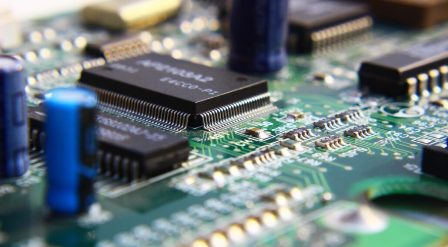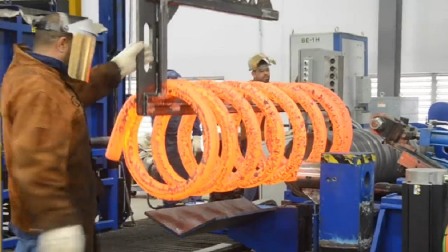
Electrical and Electronics Engineering
Electrical and Electronics Engineering is the process of designing, maintaining, and developing electrical control systems and equipment. Electrical and Electronics Engineers are responsible for building reliable system for domains transportation, telecommunications, power generation, signal transmission and distribution and scientific research keeping in mind the precision of their methodology. Electrical Engineers deal with the development of circuits and generating, distributing and using electrical energy. On the other hand, Electronics engineers deal with the behavior of the circuits and manipulate them so they can work automatically. Electrical/ Electronic Engineering are applicable in all industries. As the electronics sector is booming in India, the job opportunities for graduates are also increasing.
Role Desciption
Electrical and Electronic Engineers are responsible for coining new ways to use electrical and electronic power to evolve or upgrade products, performing accurate estimates to promote construction, installation, standards, manufacturing and specifications, directing the assembling of electrical and electronic equipment, to guarantee that the stocks meet all the specializations and regulations, investigating grievances of customers or the public for the evaluation of problems and suggesting the relevant solutions, working with project managers and ensuring that the projects are completed thoroughly within the given time and budget.
Eligibility
Route to Electrical and Electronics Engineering Profession
| Route 1 | 10 + 2 in Science with math |
| B. Tech in Electrical Engineering / Electrical and Electronics Engineering / Electronics and Communication Engineering for 4 years | |
| M. Tech for 2-3 years | |
| Route 2 | 10 + 2 in Science with math |
| B. Tech + M. Tech (Dual Degree) in Electrical Engineering for 5 years |
Significant Statistics
- Minimum 50% in 10+2 for admission to most of the colleges whereas some colleges accept students with minimum 60%
- Minimum 50% in English in 10+2
- JEE score as minimum eligibility is required by some colleges for admission
- Some institutes offer electronics engineering as a separate course
Pros/Cons
Pros
- Professionals have the choice of working in various industries
- Job opportunities are offered in both private and public sector
- Satisfying remuneration
Cons
- Job comes with risks as the job profile is hazardous
- Education and learning never ends
- Initial struggle and remuneration increases only with expertise
Leading Professions
View All
Power Generation, Transmission, and Distribution
Electrical and Electroni...
4.0LPA

Manufacturing of Navigational, Measuring, Electro-metrical, and Biomedical Instruments
These Engineers are resp...
8.0LPA

Manufacturing of Semiconductor and Electronic Components
Professionals in this fi...
6.0LPA

Manufacturing of Machinery
Electrical and Electroni...
4.0LPA

Implementation of Processing
The implementation of al...
12.0LPA

Education and Research
Teaching and conducting ...
6.0LPA

VLSI Engineer (Very Large Scale Integration)
VLSI engineers work on d...
7.0LPA
CAREER VIDEOS
Career Path
Route 1
3 Steps
Skills
Recruitment Area
Automotive ,
amusements ,
defense ,
consumers’ electronics ,
manufacturing ,
product design and development ,
system management ,
sales ,
transportation ,
wireless communication .
Recruiters
ISRO ,
Tata ,
BHEL ,
NSPCL ,
Power Grids ,
BALCO ,
Jindal ,
GAIL ,
TRF ,
TRL ,
Hindustan Motors ,
ALSTOM ,
OMEGA Elevators .
Explore Colleges
Exams & Tests
Interested? Take the next step for this career
Route 1
- 3 Steps
Skills Needed
Exams and Tests
Recruitment Area
Automotive ,
amusements ,
defense ,
consumers’ electronics ,
manufacturing ,
product design and development ,
system management ,
sales ,
transportation ,
wireless communication .
Recruiters
ISRO ,
Tata ,
BHEL ,
NSPCL ,
Power Grids ,
BALCO ,
Jindal ,
GAIL ,
TRF ,
TRL ,
Hindustan Motors ,
ALSTOM ,
OMEGA Elevators .



















